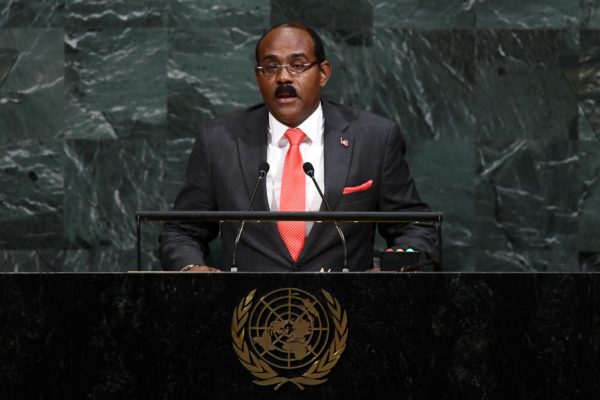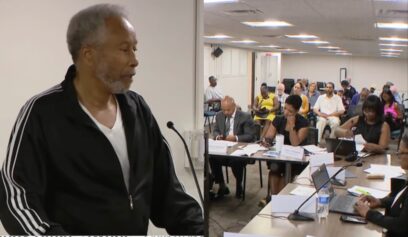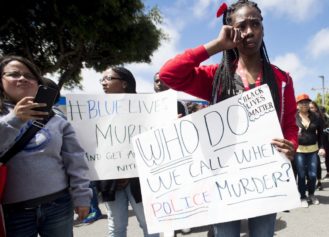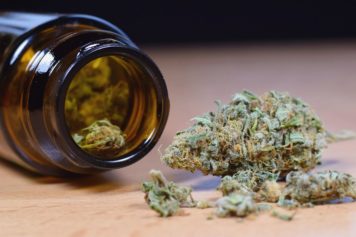The government of Antigua and Barbuda is calling on Harvard to make amends for its historical ties to slavery — the labor and profit from which led to the establishment of its elite law school.
Gaston Browne, prime minister of the twin-island Caribbean nation, sent a letter to Harvard President Lawrence S. Bacow last month demanding the Ivy League institution pay reparations as acknowledgement of the Antiguan slave labor contribution, according to The Harvard Crimson.

Prime Minister of Antigua and Barbuda Gaston Browne says Harvard University has failed to acknowledge its ties to slavery. (Photo: JEWEL SAMAD/AFP via Getty Images)
“Reparations from Harvard would compensate for its development on the backs of our people,” Browne wrote in the Oct. 30 letter. “Reparation is not aid; it’s not a gift; it is compensation to correct the injustices of the past and restore equity. Harvard should be in the forefront of this effort.”
This isn’t the first time the Antiguan government has pressed the university to atone for past with slavery. The Caribbean nation previously reached out to Harvard, once in 2016 and again in 2018, calling for restitution. The latest push comes after what Browne called Harvard’s refusal to acknowledge it’s ties to Antigua, especially at a time when other institutions have taken steps to atone for their slave past.
In his letter, the prime minister highlighted that several institutions of higher learning, including Princeton Theological Seminary and the University of Glasgow in the U.K. have already committed payment to Antigua and Barbuda for their ties to slavery in the Caribbean.
“We consider Harvard’s failure to acknowledge its obligations to Antigua and the stain it bears from benefitting from the blood of our people as shocking, if not immoral,” Browne opined.
It was a donation from slaveholder Isaac Royall Jr. in 1815 that allowed Harvard to found what would become its prestigious law school. Per the Miami Herald, the Antigua plantation owner left land to the university in his will to establish its first endowed law professorship.
Symbols from the Royall family crest were later featured on the seal of Harvard Law School in 1937.
In response to Browne, Bacow penned a letter highlighting actions taken during former president Drew G. Faust’s tenure, including the removal of said seal. Harvard also installed a stone memorial honoring the enslaved persons “whose labor created wealth that made possible the founding of Harvard Law School.”
Bacow also insisted the university had taken “significant steps” toward addressing its past, but acknowledged “there’s more work to be done.”
“Indeed, Harvard is determined to take additional steps to explore this institution’s historical relationship with slavery and the challenging moral questions that arise when confronting past injustices and their legacies,” he said. “Harvard is also committed to working with other educational institutions to study slavery and its legacy.”
Browne wasn’t impressed by the president’s response, however, calling it “disingenuous.”
“He has acknowledged the veracity of our claim that Harvard Law School benefited from endowments funded from profits associated with the enslavement … at Royall Estate in Antigua, but he has failed to address the issue of reparations in a meaningful way,” Browne told the Herald. “If they fail to engage meaningfully, we will be forced to pursue all legal remedies available to us to ensure … justice.”
Browne’s letter comes months after Harvard was slapped with a lawsuit brought by a woman who accused the university of wrongfully profiting from 19th century daguerreotypes of her enslaved ancestors.


